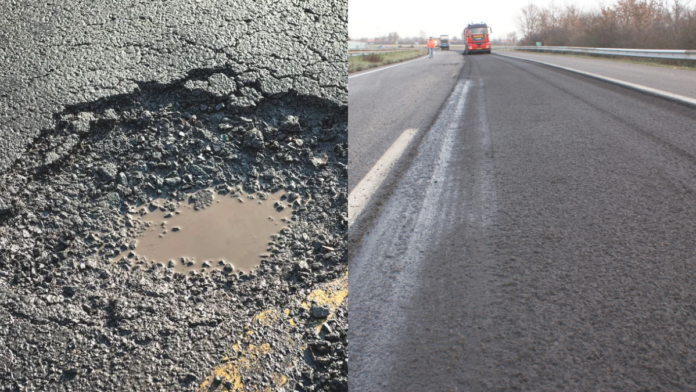The National Highway Authority of India (NHAI) is exploring a new technology that allows asphalt to self-heal and repair potholes. This innovative method can increase the lifespan of roads and reduce the need for road maintenance, while also minimizing traffic disruptions. Officials stated that the adoption of this technology could help address the issue of potholes, which is a primary cause of road accidents and deaths in India.
Asphalt is composed of gravel and sand held together by Bitumen, which is a thick and viscous mixture. Over time, Bitumen wears down, and pieces of asphalt erode, creating small cracks that eventually turn into large potholes. The new technology involves mixing small pieces of Steel wool into the Bitumen to make it conductive. Once the Asphalt is poured and set, an induction machine heats the Bitumen, allowing it to rebind with stones and gravels in the Asphalt.
Before adopting this technology, the government will undertake a cost-benefit analysis to evaluate its viability. According to officials, this technology could practically eliminate the need for road maintenance and lower traffic disruptions, thereby increasing the lifespan of roads.
In 2022, India witnessed a 22.6% increase in the number of road accidents due to potholes on national highways, resulting in 1,856 deaths, a 25.3% year-on-year jump. To tackle this issue, the road transport and highway ministry has earmarked ₹2,600 crores for road maintenance in 2024-25, which is slightly higher than the budgetary and revised estimates for 2023-24 but higher than the ₹2573.66 Crore spent in 2022-23.
